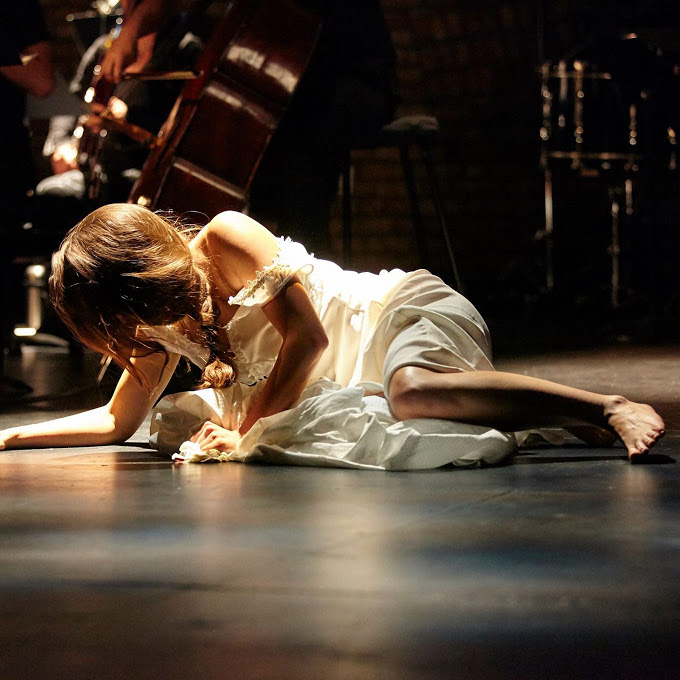
Spotlight on: Emma Char
InterviewToronto-based mezzo-soprano Emma Char earned great praise last season for her work in the title role of Britten’s The Rape of Lucretia; this year, she’s gearing up to join The Bicycle Opera Project for the Canadian premiere of Sweat, an a cappella opera by Juliet Palmer and Anna Chatterton about the global garment industry.
Soft-spoken yet thoughtful, Char gave us an honest interview about where a singer’s energy is best spent, and the important difference between hard work and martyrdom.
Why do you sing and why are you doing it professionally?
I began singing because I loved it. I continue to do it because I feel I have something to say through this medium and nothing else makes me feel more connected to who I truly am.
As for why I am doing it professionally, it’s something I have always had a deep belief or confidence in, even through periods of time when I doubt myself or feel that pursuing singing as a career is almost overwhelmingly heartbreaking. I realize that any profession is difficult, just difficult in different ways and nothing else I’ve done or can think of doing feels as invigorating and fulfilling to me.
What does “good singing” feel like to you, and what does it feel like when you achieve it?
Good singing feels easy. It feels as though all the hours of practicing uncomfortable, awkward technical things hadn’t ever happened and that this piece is now so darn easy that all I have to do is be present singing and communicating. When I feel present singing I feel free in a really thrilling way. Technically, I know I’m on the right track when I don’t feel vocally tired after a show and feel like I could sing the show again.
What do young singers need to do more of? What should they do less of?
Young singers should do more to take ownership of their opinions and not be afraid to take risks. As young singers we are told what to do all the time. After a while, perhaps you subconsciously default to making safe choices (musically, or with regards to acting, repertoire, etc.) to not incur the wrath of the plethora of teachers and critics that have told you what to do over the years, even if somewhere deep down you don’t entirely believe in what you’re doing. There are times to listen and times to just do what you want and embody exactly what you believe. In your heart you always know what you truly think and feel, trust yourself and be brave enough to take risks.
Young singers need to spend less time being so insecure. Insecurity rears its head now and again in many different ways for all of us, but specifically I am tired of hearing colleagues trash talk one another. This behaviour is even more common in school and at Young Artist Programs. It doesn’t make you better or more interesting if you bad mouth someone and it definitely won’t somehow magically make whatever colleague you are talking about shape up.
Work on appreciating and being comfortable with your specific strengths and shortcomings and communicating your thoughts or needs directly in a kind, respectful way.
Do you have any “bucket list” roles?
There are lots, but the ones that come to mind right now are:
- Sister Helen, in Dead Man Walking; this is such a powerful piece and it would be a really interesting role to work on.
- Ariodante (Ariodante); I think this would be an incredible challenge, and what amazing music.
In another Fach I’d love to sing:
- The Queen of the Night; she has the ultimate power arias!
- Count Almaviva in Le nozze di Figaro; I’d just love to “giubilar mi fa”.
What have you learned about your career as a singer solely through professional experience?
Until recently, I thought that if I wasn’t doing everything I could to become a successful opera singer all the time (following all opportunities and constantly working my butt off to the point of exhaustion) that I should feel badly because I wasn’t as completely committed as I thought I should be. Over time, I’ve come to feel that through relaxing a bit everything is actually a lot easier.
The work is never-ending but it doesn’t have to always be all or nothing. Giving myself a little leeway to mentally relax and not beating myself up over often inconsequential things also allows my body to relax which probably helps me sing better too. Making time to experience the joys in all aspects of life is so important.
Additionally, the longer I’m involved in the business the more I realize that there is never one “right” way to do anything. There are so many approaches to singing, acting; musical styles and preferences vary widely amongst all involved in every aspect of opera. I won’t have the same taste as some on amazing singing, an awesome production, or an incredible performance, but that’s great!
This realization makes me feel as though there’s a lot more wiggle room for all of us and more space for possibility and innovation.



Comments